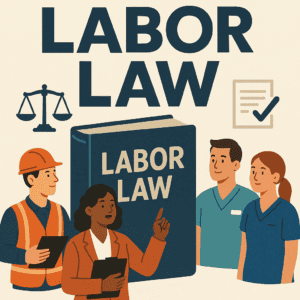Table of Contents
- Introduction to Federal Labor Law Posting Requirements
- Importance of Compliance
- Common Challenges Faced by Employers
- Consequences of Non-Compliance
- Best Practices for Maintaining Compliance
- Federal Labor Law Posting
Introduction to Federal Labor Law Posting Requirements
Federal labor law posting requirements serve as a pillar to uphold workers’ rights and ensure a safe and informed workplace. These postings include information mandated by various laws focusing on issues such as wage requirements, safety procedures, and rights for vulnerable groups in the workforce. These requirements are not just a formality but an essential practice that empowers employees and aids in the smooth functioning of organizations, reinforcing the transparency and fairness key to positive employer-employee relationships. Employers can use resources like federal labor law posters to help ensure compliance with these requirements.

Importance of Compliance
Adhering to federal labor law posting requirements is essential for several reasons. It is a legal requirement, and failing to comply can lead to substantial financial penalties and legal action. Compliance protects both the employer and the employees—keeping the employees informed minimizes misunderstandings that could lead to disputes. Moreover, compliance helps build employee trust and satisfaction, contributing to a more motivated workforce. A culture of compliance reflects a company’s dedication to maintaining a fair working environment and can serve as a competitive edge in attracting and retaining talent.
Common Challenges Faced by Employers
Despite the straightforward nature of the law, many businesses grapple with ensuring complete adherence to posting requirements. The dynamic nature of labor laws means that regulations are subject to change, often necessitating updates to the postings. Multi-state employers face compounded challenges as they must comply with varying state-specific postings and federal requirements. The physical display requirement is frequently misunderstood, with some employers incorrectly assuming that digital availability suffices. Another common issue is the physical placement of these postings, which should be in a conspicuous location accessible to all employees.
Consequences of Non-Compliance
Failing to comply with posting requirements can lead to severe consequences, both tangible and intangible. The financial impacts can be significant, from substantial fines imposed for each separate violation to costly legal battles when employees are uninformed of their rights. Beyond this, non-compliance carries reputational risks; it projects an image of nonchalance towards legal obligations and employee welfare, undermining the organizational culture. According to the U.S. Department of Labor, many businesses face penalties simply due to a lack of awareness or understanding, underscoring the importance of staying informed.
Best Practices for Maintaining Compliance
Employers should adopt best practices tailored to their organizational structure and resources to navigate the complexities of federal labor law postings. Regularly scheduled audits of current postings against the latest legal requirements can preempt any lapses. Utilizing compliance management software or subscribing to an update alert system can save time and provide peace of mind. Assigning compliance monitoring responsibility to a dedicated staff member ensures continuity and accountability. Integrating compliance into broader corporate governance and mindfulness efforts further reinforces its importance within the company ethos.
Federal Labor Law Posting
Federal labor law posters are not merely supplemental but form the backbone of workplace compliance. When accurately adhered to, these posters signify a company’s commitment to upholding the rights of its workforce. They cover crucial information, from workers’ compensation rights to anti-discrimination laws, and the essential information they carry should be accessible and visible. Ensuring these posters are consistently updated and displayed by the law is vital.